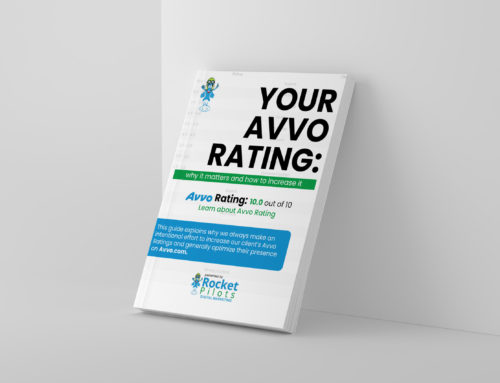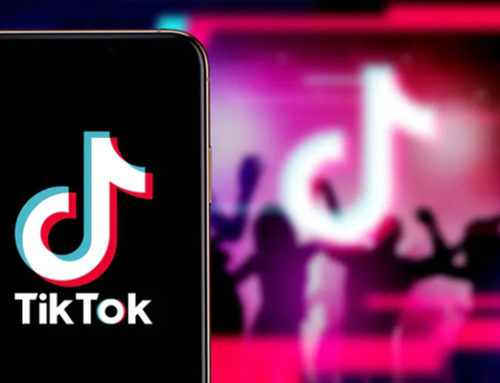How often do you hear a personal injury law firm doing Facebook advertising? Is a difficult niche to run effective Facebook ads for?

To make matters worse, 62% of marketers say that Facebook ads didn’t hit their marks. Your personal injury law firm doesn’t have to become a part of that percentage.
I think that businesses that try out Facebook ads and fail, end up blaming the platform.
My advice, don’t believe them!
Many personal injury lawyers are hesitant about Facebook ads because they don’t understand how the system works. But once they do, then they’ll know how to make Facebook ads work for them.
In this guide, you’ll understand how to leverage Facebook ads effectively and how to get your posts seen by the right audience at the right time.
Why Personal Injury Lawyers Should Use Facebook Advertising
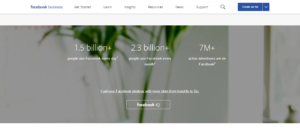
Biggest user base
Facebook is without a doubt the largest social media network. It boasts over 2.38 billion active users per month. Users spend an average of 50 minutes each day on the platform.
In addition, Facebook takes up 22% of internet time spent on mobile devices compared with 11% on both Google search and YouTube.
The point is, Facebook provides impressive access to prospective clients. This will help you to create brand awareness, capture new leads, and target for specific personal injury cases.
Extensive targeting options
Facebook allows you to become more precise when selecting the target audience for your ads. The more you know about them, the easier it becomes to reach out in a way that genuinely resonates with them.
You can target people beyond the typical demographic information like age and geographic location. You have the option of personalizing ads based on interests, behaviors or intents and their connections.
The best alternative to Google Ads

Even though Google ads are effective online advertising channels, they are also quite expensive. Here, you target clients based on their target keywords. This results in competition for keywords that have a higher search volume. You’ll end up paying a higher cost per click prices.
Research shows that the average cost per click for Facebook ads is generally lower than Google ads. Similarly, the average cost per click in the legal industry using Google Ads is $6.75 while the average cost per click using Facebook Ads is $1.32.
Native advertising
Unlike YouTube, Facebook integrates its ads into the natural flow of user experience. YouTube forces users to sit through a 30-second ad before hitting the skip ad button.
On the other hand, advertising on Facebook involves paying to get your legal services in the newsfeed of a specific target audience. The ads usually blend in and users can opt to look at your ad or keep scrolling.
When you disrupt the flow of user experience, you come off as annoying and you risk being dismissed. However, when you strategically place ads and offer potential clients the freedom of being in control of what they want to read, you will be able to get their undivided attention.
Unlimited customization
Apart from its targeting abilities, Facebook ads come with unlimited customization options.
You can create a unique landing page on your website, turn potential clients into email list subscribers or make it easy for them to request a phone call.
You can also send people who click your ads to your Facebook fan page and get their contact information.
How to Set up Your Facebook Advertising Account
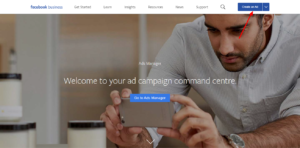
Facebook ads are created in the Ads Manager of your Business Manager account. You can manage access to your ads account and pages.
You also have the option to share your account with agencies to help you manage your campaigns.
The Ads manager will help you to:
- Set up new campaigns
- Design new ads for every campaign
- Manage bids
- Create different audiences to target
- Enhance and track your campaigns
How to Set up Facebook Ad Campaigns
To create your first Facebook ad, you need to understand its campaign structure. This includes:
- Campaigns
- Ad set
- Ad
The campaign is where your ad sets and ads live within. This is also where you’ll select an advertising objective.
The ad set is where you’ll choose the type of ads you want to run as well as your target audience.
Lastly, there are the ads themselves, where you decide elements like images, copy and call to action buttons.
A single campaign can have one or more ad sets to let you test various audiences and ads against each other. You can also have multiple ads to test the ones that will work best.
There are three categories of objectives within Facebook ads to choose from. These objectives help you align ads according to your overall marketing goals. They include:
- Awareness
- Consideration
- Conversion
Under each category are more detailed options as shown below.
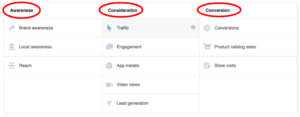
How to apply Facebook objectives to your personal injury law firm
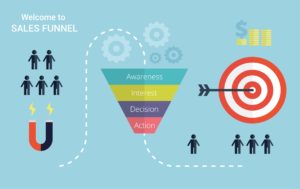
This is where most marketers who end up blaming the Facebook platform get it all wrong. Unlike Google Ads, rarely do people look for stuff to buy on Facebook.
Instead, people want to catch up with friends, family and just connect. This is why the way you approach Facebook advertising has to be unique.
You have to create a Facebook sales funnel using the campaign objectives. This will help you to come up with ads that’ll get your attention while others do the nurturing. Then you can have one or two more to do all the converting.
Sounds impressive, right? Now let’s break it all down.
Awareness
In the early stages, you need to get people’s attention first. This will help you to get website traffic for your custom audience. A great strategy is by capitalizing on what’s trending in the news that fits within your area of expertise.
For instance, the local news could be covering a huge story related to nursing home abuse. You can create a post on your firm’s Facebook page linking to the news coverage and boost it for just a few days.
For brand awareness campaigns, focus on providing expert legal advice instead of being salesy about your services. Remember that you just want to create an interest in your law firm at this stage.
Consideration
The next step is to start sending offers to your Facebook traffic that will transform them into leads.
You can tailor your ads to fit that specific target audience. For example, you can serve them a new ebook on nursing home neglect.
The point of this is to get their contact information from your audience that you can use for remarketing.
Conversion
Once you’ve created attention and started to generate leads, the next step is to optimize your ads for conversions. It involves encouraging people to contact your law firm, arrange a consultation or use your legal services.
Instead of encouraging Facebook users to click on your website to “learn more”, use conversion ads to download an ebook, contact you or consult you.
Types of Facebook Ads
Below are the best ad formats you can use for your personal injury law firm.
Video Ads

Video continues to reign supreme on Facebook, especially for mobile users. Video adverts are great for reaching wide, bring engagement and conversions.
Strive to keep your videos short and informative because you only have 1.7 seconds to get people’s attention.
You should also make your videos accessible by using captions. They usually increase video viewing time. Follow the Facebook video ads specs to stay on track.
Photo Ads

Facebook provides the option of using single image ads that are ideal for most placements. Images are great for accomplishing brand awareness, engagement and reach.
You should use real images of your firm and staff members to offer an authentic feel of your personal injury law firm and build trust. To include more than one image, slideshow, carousel or collection ads are the better option.
Slideshow Ads
Slideshow ads help you add eye-catching motion to multiple images. You can select stills from a pre-existing video and use it in a slideshow format.
Slideshow ads lightweight clips so they can be a good alternative to video ads if your audience is at locations with poor connection speeds.
Instant experience Ads
Formerly known as canvas ads, instant experience ads are designed for mobile devices and loads fifteen times faster than mobile web pages.
It also comes with the Facebook pixel feature to help you re-engage visitors. In addition, the instant experience features an instant form template to help you gather contact information and capture leads.
Carousel Ads

Carousel ads are a great way to tell a story in parts. You have the option of downloading between two and ten images or videos that users can just swipe through.
These ads are ideal for showcasing different areas of expertise. For instance, you can highlight blog posts about animal bite injuries, construction accidents, medical malpractice, slip, and fall accidents as well as wrongful death topics. One of these posts will most likely be appealing to your target audience.
Tracking Facebook Campaigns in Google Analytics
Even though the Facebook Ads Manager offers detailed insights on the performance of your ads, you’ll like to find a discrepancy between the Ads Manager and Google Analytics. This makes it harder to determine if Facebook advertising is cost-effective.
To get accurate reporting, it’s important to create URL parameters. This will help you to discern regular Facebook traffic from the traffic that comes from your Facebook ads campaigns.
For example, you can use URL parameters to get insights about those who clicked ads to get to your Facebook Page or website.
What Is Facebook Pixel?
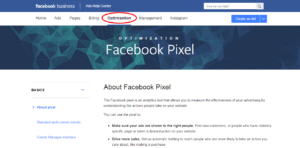
The Facebook Pixel is a tracking code that you can use for building audiences and retargeting ads.
When viewers click on your ad, a pixel is placed on their device. This way, you’ll be able to create a custom audience and send follow-up messages to get them to come back and eventually seek your services.
You can also use the pixel’s targeting data to create a lookalike audience of people with similar demographics or case interests (animal bite injuries, medical malpractice, wrongful death, etc). This will help you expand your potential client base.
Using the Facebook Pixel lets you optimize for conversions that closely align with your business goals. You can even track potential clients across their devices to refine your ads strategy.
Facebook Ad Copy
You’ll need to have different forms of content to reach multiple segments of your audience. This could be a video, blog post, infographic, webinar, slideshow or an ebook geared towards promoting a specific area of expertise.
Pay attention to the levels of engagement in order to determine the content leading to the most conversions. To create attention-grabbing Facebook ads, keep them colorful and make sure the ads contrast with the newsfeed to pop out.
Remember to use the right image size (1200 by 628 pixels) for your ads to be visible on every type of screen. Equally important, place your call to action in the ad image for people to read it once they see your ad.
Creating Your Facebook Audiences

There are three main categories of Facebook audiences including:
- Saved audience
- Custom audience
- Lookalike audience
Saved audience
You create this type of audience using the variety of targeting options available on Facebook. This could be based on demographics, interests, behavior or location.
You can set up a radius around hospitals targeting chiropractors and pain doctors. This will help you to effectively create a geographical fence around where injured clients are.
Custom audience
These are your high-value target audiences because you can use pixel data to retarget past visitors who engaged with your ads.
The custom audience is considered as your warm leads so your goal will be to nurture relationships with them.
It’s important to assess engagement levels and determine the type of content that they respond to. This will help you add an effective call to action messages that get users to contact you.
Lookalike audience
Lookalike audiences resemble your current clients, page fans or web visitors. They have the same interests, behaviors, and hobbies that mirror your existing core audience.
Think of this demographic as a cold lead that can easily be transformed into a warm lead. That is why they are worth targeting to expand client reach.
You can create this type of audience using custom audiences of your current clients. Facebook scans the custom audience and picks up common data so you can reach out to prospects with similar attributes.
You can also use the Facebook Pixel to collect enough data that pinpoints user activity such as who viewed the page or submitted a form. Then it will find other people who exhibit similar attributes.
Facebook Ad Bidding and Placement Optimization
Facebook placements are usually enabled off the bat but you have to balance high and low-cost placements. This will help you control the ad formats you use on various platforms and their cost.
Speaking of budget, you have the option of choosing between a daily or lifetime budget. When it comes to daily budgets, you can expect a 25% increase in your spending when Facebook spots high potential opportunities. However, it lowers spending on low potential days.
On the other hand, Facebook evenly divides your campaign budget across selected campaign dates. It will also determine the average amount you’ll be spending every day.
You should make use of delivery schedules to regulate ad spending by day or periods. You can also leverage the delivery type to regulate the frequency at which your ads are shown.
Facebook gives users the option of choosing between manual and automatic bidding. Automatic bidding is great when you have no idea about your acceptable limit. Manual bidding helps you control the amount you wish to spend on Facebook ads.
Facebook Retargeting
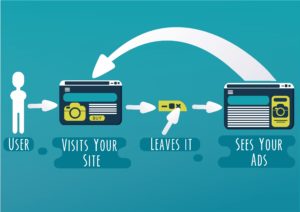
Fact is- it takes several times for the Facebook audience to be exposed to your personal injury law firm before they start seeking your services. You have to connect first.
The only perfect way to do this is by remarketing consistently.
Facebook retargeting campaigns not only yield a higher ad engagement but they also have lower costs per clicks. You can run your remarketing campaign by installing the Facebook Pixel in your custom audiences to retarget to different segments.
For example, you could retarget people who visited the wrongful death page or those who checked out your animal bites injuries post but didn’t download your ebook.
To be honest, one follow up Ad won’t do the trick! You have to send multiple retargeting campaigns for the target audience to start warming up to you. This is where sequencing ads come in. They let you set specific time windows on every ad in an ad series. This ensures that your potential clients convert gradually.
Facebook Ad Reporting
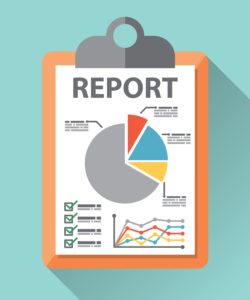
No matter how confident you are about your Facebook campaigns, you still need to monitor its performance to determine what is working and areas that need improving.
You can view your campaign performance through the Facebook Ads Manager. You can also filter campaigns by objectives or dates and measure the performance of your individual ads and ad sets.
Important metrics that you should pay attention to include:
- Impressions
- Cost per click
- Unique link clicks
- Cost per conversion
Summing It All Up
As you can see, Facebook ads are not that hard to understand. You just have to bear in mind which objectives you have for every ad. Understanding the process it takes to reach your average Facebook user is also vital.
Leverage on using the awareness, consideration, and conversion stages. Remember to install the Facebook pixel to build your audience and send retargeting messages.
Of course, you don’t have to do it all on your own! My team is well versed in Facebook advertising for personal injury law firms. If you need help defining your Facebook marketing goals and bringing them into fruition, contact us today.




